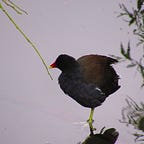A North Eastern insight to Covid life
‘Manic’.
I think many of us can relate to Carol Botten’s pithy description of life under lockdown. Carol is the Chief Executive of VONNE (Voluntary Organisation’s Network North East, a regional infrastructure organisation) and local liaison lead for the Emergencies Partnership in the North multi-agency cell. We’re delighted to have a blog takeover from Carol who shares some behind the scenes insights on what 2020 has been like for VONNE.
“I say it was manic, but fortunately, we were pretty well set up as an organisation to pivot to home working, with IT equipment and flexibility already built in. This meant as the Covid-19 tidal wave crashed down, we could hit the ground running from a logistics point of view.
“But the support that others needed from us and how they could access it obviously changed as lockdown kicked in. We had a short period of intense reflection on the role of VONNE in the face of this. Quite a lot of what we did anyway was focused on connection, facilitating conversations, brokering links between funders and local organisations.
“At the end of April we ran a survey which gathered more than 400 responses on the impact of Covid on the North East voluntary sector. We plan to run the next one in November and it will be so interesting to see what’s changed. In April, overwhelming percentages felt their funding was at risk, that individuals were receiving a significantly reduced service. But hearteningly, 65% of respondees thought the response and flexibility shown by funders was a positive, as well as the high levels of collaboration and partnership working that had arisen.
“Sector-wise, we were not ready. Business continuity plans were not place. Remote working was a challenge. Organisations we support desperately needed help with meeting the digital and equipment challenges of remote working, mental health support for staff and volunteers and funding.
“VONNE needed to support other organisations to do what they do, but just in a different way. We put weekly catch ups in with those we support, and focused more on CEO peer to peer support platforms. This echoes what we’ve found most useful through being part of the Emergencies Partnership — the chance to hear what others are doing and the issues they face.
“We set up an online community on Knowledge Hub to be used as a platform for sharing Covid-19 resources and information as it emerged. It was the quickest and easiest way to get a huge range of information into one easily accessible place. It’s not used so much now once that initial flurry (which lasted a while) died down and people found their feet more, but it was so valuable during the first stage because all the information flying around just added to people feeling overwhelmed. Everybody was doing the best they could, but there was a fair amount of chaos as no one had been through anything like this before.
“As both the weather and local lockdowns tighten their grip, organisations do feel more ready than they did in the spring, if only because we’ve had Covid on the scene for months now. VCS organisations are integrating their Covid response into standard approaches.
“Perhaps I’m being optimistic, but I feel we’re stronger ahead of the winter and Covid 2. The structures, conversations and partnership are there and ready. Our intelligence gathering is set up. We’re more organised, and thanks to the Emergencies Partnership VONNE has a much better relationship with the local resilience forums. Being able to have a voice in that Zoom room is so valuable.
“When the partnership was established, it made total sense for VONNE to take the Liaison Lead role. The North East is an interesting case if you look at how the Emergencies Partnership functions across the country. VONNE is one of only three regional infrastructure organisations, the others being in the North West of England and London, and arguably, their role is similar to the Emergencies Partnership in terms of where they sit on any layered analysis of the sector. They support grassroots organisations; the Emergencies Partnership does that in particular way too. We haven’t had a request for support that we’ve yet needed to escalate to the partnership as unmet need. But that’s not to say we haven’t found value in being part of it.
“The connection to others has been everything for us. Seeing the different approaches and practices on how to move forward on responding to Covid-19, and being able to tap into examples of best practice that we and other organisations can then use to persuade our partners of better ways to work.
“I think it just shows the crucial nature of having this support out there — whether it’s a regional infrastructure organisation like VONNE, or a national collaborative ecosystem like the Emergencies Partnership. The connection of local to national is valuable and needs to continue.
